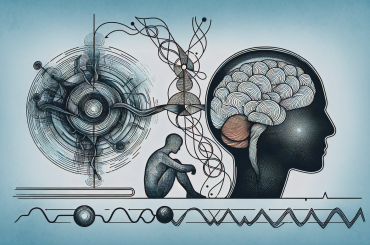
Made a decision to turn our will and our lives over the care of God as we understood Him.
In some ways, Step 3 is the first action step of addiction recovery, as it’s the first time you’re actually asked to do something. You are asked to “make a decision” that outside assistance and guidance will be accepted and followed.
“You know, tall guy, long silver hair and beard, white robes, Birkenstock sandals, gets very, very angry and floods the planet or drops a plague of locusts when people don’t do what he wants, etc.”
When I work with addicted clients and newcomers to 12 step recovery, Step 3 is when I typically hear them complaining about the word “God.” Often, this is because they have unpleasant early-life memories of a misogynistic, bigoted, and/or punishing deity. You know, tall guy, long silver hair and beard, white robes, Birkenstock sandals, gets very, very angry and floods the planet or drops a plague of locusts when people don’t do what he wants, etc. Unsurprisingly, many addicts, even those who are desperate for recovery, want no part of that guy.
The good news is that people who have bad memories of God and/or a lack of belief in organized religion don’t have to utilize their early-life conceptualization. The final four words of Step 3, as we understood him, make that perfectly clear. If necessary, a completely new concept of God can be developed, and that concept doesn’t even have to be a spiritual entity. One popular option is turning God into an acronym—short for Good Orderly Direction—with that direction typically provided by fellow recovering addicts, twelve step sponsors, therapists, and supportive family members.
That said, most addicts do prefer something spiritual, even if it’s completely unrelated to the God of their childhood. If you are among the addicts who wants/needs to re-conceptualize your vision of God, one or both of the following exercises may help:
- Write a job description for God as you would like him or her to be. As you do this, ask yourself: “What do I want from this entity? How can I learn to trust this entity? What sort of interactive give and take am I looking for?” You might want to write this job description out in the form of a want ad, perhaps something like: “Sought: A power greater than myself to help me stay sober and navigate life. Must be available 24/7. Must be nonjudgmental. Must care about my physical, emotional, and psychological wellbeing. Sense of humor a plus.”
- Get a sheet of paper and draw a large circle in it. Inside the circle, write down attributes you would like in a friend or mentor—reliable, caring, nonjudgmental, fun, smart, tactful, nice, etc. Outside the circle, write down attributes you would not like in a friend or mentor—angry, boring, vindictive, controlling, etc. Then grab a pair of scissors and cut away everything outside the circle, throwing that material into the trash. The traits that are left, the items inside the circle, can then be used as your description of God.
If your want ad and your circle of desirable traits do not immediately feel spiritual to you, don’t worry. That is normal. I suggest that you simply give yourself some time to live with your new conception of God, in the meantime acting as if you fully believe in this loving and supportive entity. Most addicts who do this find that over time and with continued sobriety, this ideal becomes the reality.
Whatever version of God you choose to believe in, do not let anyone tell you that you are wrong. After all, this is God as you understand (or don’t understand) him/her/it. Your vision of God has absolutely nothing to do with what your sponsor or your best friend or anyone else believes.
“At the end of the day, recovering addicts are well served to understand that their version of God can be anything outside of themselves that helps them stay sober.”
Once you have conceptualized your higher power—whatever you’ve come up with, even if it’s as simple as Good Orderly Direction—you can begin the process of accepting help from that entity. In a general way, this means going to and participating in twelve step meetings, getting a sponsor, interacting with other recovering addicts, taking advice and direction from your therapist, becoming accountable with your family, etc. It might also mean going to church, confessing your sins, praying, meditating, etc., but only if those actions happen to be a part of how you understand and interact with the God of your understanding.
At the end of the day, recovering addicts are well served to understand that their version of God can be anything outside of themselves that helps them stay sober. As such, you are not tied to any particular definition or set of beliefs; instead, you are free to choose a higher power that works for you, regardless of how anyone else may feel about it. If you’re like most recovering addicts, you will quickly realize that accepting help from a power greater than yourself (including your twelve step fellowship) is a very good idea, because doing so makes staying sober much, much easier—with or without a traditional version of God and/or an organized religion.
In future postings to this site, I will present suggestions for how to effectively work Steps 4 through 12. For other general information about healing from addiction, check out my website. For treatment referrals, click here, here, and here.









3 Comments
Problem with it all is that the original intention, back in the 1930s, was exactly God. A deity. That concept was from nearly 100 years ago. The “gray bearded guy in the sky” was the entrenched and accepted idea of a god.
Fast forward to today, and now it’s an attempt to “spin” it into another meaning to be more inclusive. I get it. But it still IS about a god. It isn’t inclusive.
Final point, anyone that is a strong advocate for AA and the 12-step process consider it the ONLY way. It is not. Certainly not for everyone. And the success rates of the 12-steps are dubious at best.
The concepts of the 12-steps are fine. You just can’t get rid of the “god concept” and make fit for everyone.
If I don’t believe in the traditional God, what makes you think I’m going to wake up some morning, create a deity, then start believing in it? And then you suggest this: “Whatever version of God you choose to believe in, do not let anyone tell you that you are wrong.” What? Just because I create a really great female goddess, complete with long, flowing hair with nurturing tendencies, I’m now supposed to believe in this version of God and not let anyone tell me that I’m wrong? This is where “We Agnostics” really misses the part, too. My “God,” if you will, is REALITY. Something I’ve been missing through my entire haze of a life. It’s real. I don’t pray to reality. I don’t believe reality has grace, compassion, mercy or justice. It just IS. I didn’t create it, but I have to follow it’s rules, and I do so by meditation and mindfulness. Thank you for your article, I know it comforts many addicts. But a perpetuation of this counter-thinking philosophy is still believing in a Higher Power. One that directs, watches and cares. Reality doesn’t care. And I find great comfort in that. Thank you, again.
Thank you Mark, right on point. I plan to use your “job description” as a future assignment with sponsee’s. In the world of recovery the word “surrender” is tossed around a lot. You can’t get away from it. For me, complete surrender is/was such a crucial ingredient. My admission of powerlessness and a former of “letting go”. I often think of myself in the beginning of this recovery journey and now to other newcomers. What does it mean to surrender and to let go? What happens after you admit your powerlessness over whatever addiction you are in recovery for? What does it feel like to surrender and more importantly “How Do You Surrender? I believe the entire concept is a bit hazy to many starting out. For me, complete surrender implied a focus, a Crack in my defense system, an opening transformation of posture and a major change of attitude. That “letting go” of resistance, denial, judgement, criticism and rationalization. It was an opening up to the POSSIBILITY of recieving help and support and a subconscious admission that I have no control and never really had it in the first place.
When I began to trust that their is growth in taking action despite my fears or uncertainty, then I was able to work on this step. Most Sincerely, jen R (xnavygal)
GOD= Gift Of Desperation